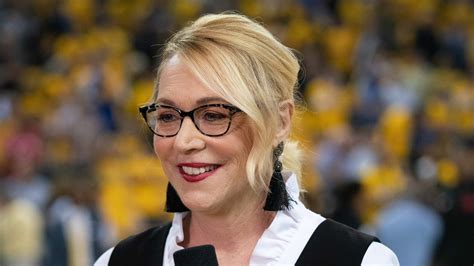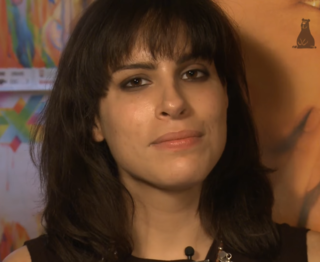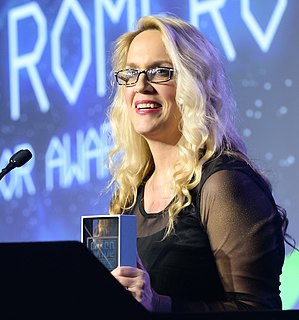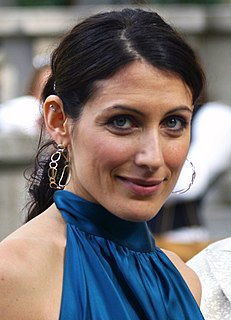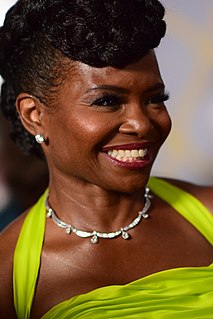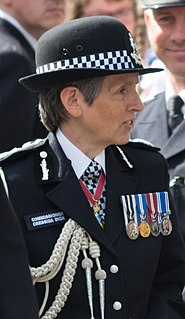A Quote by Doris Burke
I'm thrilled that ESPN has been the leader in trying to find opportunities for women in visible and non-traditional roles.
Quote Topics
Related Quotes
claims about what's 'natural' have long been used to reinforce traditional gender roles and values. ... Even the notion that women should have children at all is based on the idea that a woman's inherent and most important role is that of mother. Shockingly, men's 'innate' roles are a lot more fun than the ones bestowed on women.
Throughout my career I've played a lot of parts that might've been played by a man. They're human roles rather than specifically men or women. I've never been as hooked into that as a lot of women are, you know, like, 'There aren't enough roles for women.' There aren't necessarily a lot of good roles for anybody.
The roles that men and women play are no longer the standard traditional roles of way back when but are those of two very individual people living their lives. I think it's been a hard transition in society - just take a look at the divorce rate - to figure out what that means now. How do you resolve that?
Often, in a given project team or network, one sees leadership roles shifting among various members at various times. Attempts to fit these into traditional views of "leader" and "follower" don't quite work. It's more like Twitter: the "leader" has "followers" - but the "followers" are empowered to alter the relationship unilaterally, and the "leader" must continually earn the consent of the "followers."
If you just look at the number of roles for women versus the number of roles for men in any given film, there are always far more roles for men. That's always been true. When I went to college, I went to Julliard. At that time - and I don't know if this is still true - they always selected fewer women than men for the program, because there were so few roles for women in plays. That was sort of acknowledgment for me of the fact that writers write more roles for men than they do for women.
